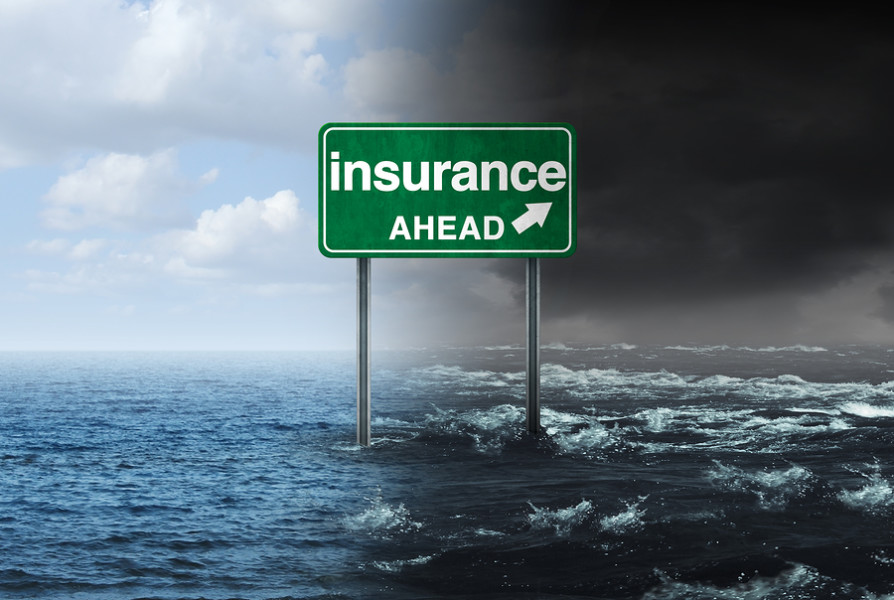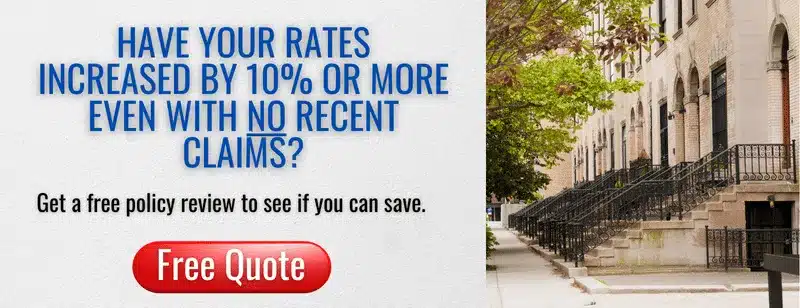Natural Disasters Anywhere Can Affect Insurance Premiums Everywhere

When a fire, earthquake, hurricane or tornado happens elsewhere in the country, our hearts go out to the people who’ve suffered. We’re also thankful that the disaster happened somewhere else. When it comes to insurance, however, that same disaster affects everyone—no matter where they live.
According to the Insurance Information Institute, weather-related claims are the most frequent, especially damage caused by wind, hail, storms and flooding. When a natural disaster causes widespread destruction, insurance covers many of the costs of that damage. As a result, rates increase for all policyholders to help cover those claims.
Two Ways Natural Disasters Raise Premiums
Whether local or across the country, natural disasters raise rates for everyone. Here’s how.
More Natural Disasters
The increasing frequency and severity of natural disasters are driving rate increases throughout the insurance industry. No insurer is immune.
The National Oceanic and Atmospheric Administration (NOAA)’s National Centers for Environmental Information (NCEI) recorded 27 billion-dollar natural disasters in 2024, which was only one behind the record set in 2023. The total cost for all natural disasters in the U.S. in 2024 exceeded $182 billion. That includes hurricanes, floods, fires and other natural disasters. With wildfires still raging in California, that number could be even higher in 2025.
High Rates in Higher Loss States
Rate increases are even greater in areas where homeowners make the most claims and suffer the greatest losses due to natural disasters.
A Policygenius report notes that homeowners insurance premiums in the U.S. increased an average of 21% nationally from May 2022 to May 2023, but disaster-prone areas saw much higher increases. The average Florida homeowner, for example, saw premiums jump by 35%.
Prepare for an Emergency
You can’t control when an insurer will raise its rates. But you can, and should, control what you’ll do when disaster strikes.
USAGov, the federal government’s official guide to government information and services, recommends that all homeowners:
- Create an emergency plan. Decide in advance how everyone will react to different types of emergencies, how they’ll escape the premises if necessary, and where everyone will meet. Don’t forget pets!
- Prepare an emergency kit. Families should stockpile medicine, clean water, food and other supplies in the event of evacuation, power loss or other issue.
- Stay informed. Get emergency information from the Federal Emergency Management Agency’s (FEMA) mobile app. Sign up for National Weather Service alerts. Launched in 2012, the Wireless Emergency Alert (WEA) public safety system warns the public about dangerous weather, missing children and other urgent situations.
Review Your Homeowner’s Policy
Don’t assume that your home will be covered in the event of a natural disaster. There’s no such thing as a “standard” homeowner’s policy that covers all possible disasters. Many homeowners assume that because their home is miles from any body of water, or because tornadoes or hurricanes are rare in their area, they can skip that coverage and save some money.
Homes can flood during hurricanes and heavy storms. Local tornadoes can suddenly pop up, damage a few buildings, and then dissipate. The odds of a natural disaster, like the numbers of disasters themselves, are increasing.
Understanding your insurance policy and ensuring your home and possessions are covered if disaster strikes is critical. Getting an annual policy review by an independent broker is the best way to find the right coverage at the best price.
If you have any questions about your current insurance policy or would like a free, no-obligation homeowners insurance review, please call us at 877-576-5200.
If you have any questions about insurance or your current insurance policy, or would like a free homeowners insurance review, please call us at 877-576-5200.

